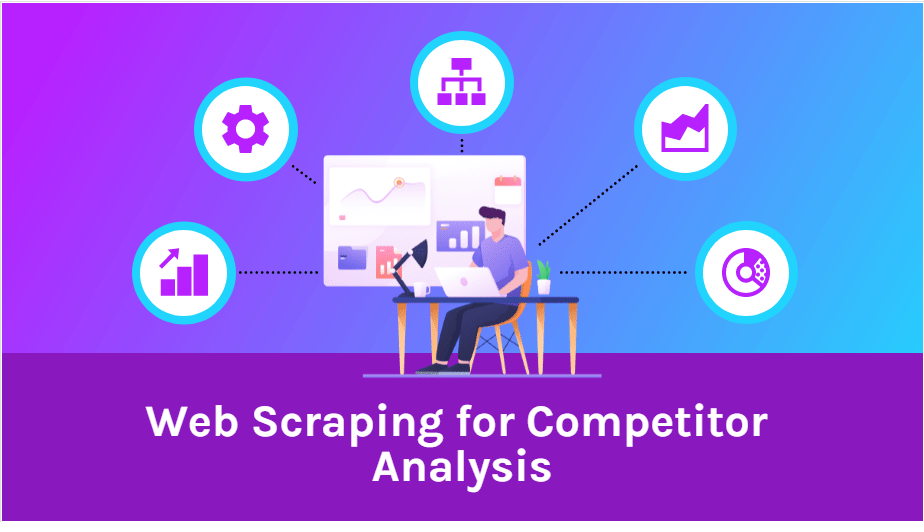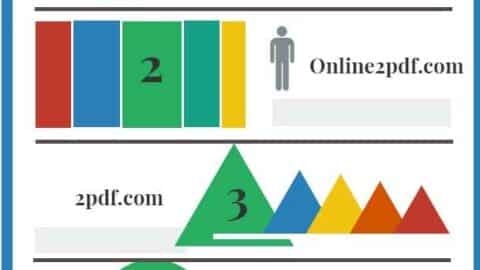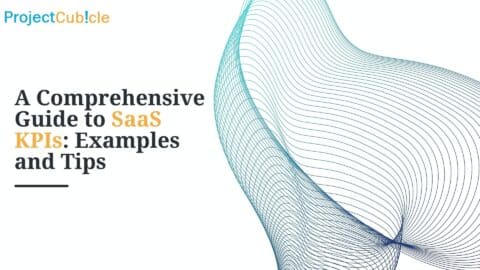Web Scraping for Competitor Analysis
In this article we will discuss web scraping tools. How far you’ll go in the business world is, in great part, based on how well you know your competitors. Keeping an eye on your competition allows you to find out if they’re planning to launch a new product, get a glimpse of their marketing and advertising strategies, learn about innovative ways to attract new consumers, and so much more.
Table of Contents
By conducting a competitor analysis, you can find something you can use to your advantage and get ahead of the competition. However, analyzing competitors requires you to be proactive rather than reactive.
We’re going to talk about the importance of competitor analysis, the type of data you can gather, how web scraping can help you conduct it, and explain the finer points of web crawling vs web scraping.
The Basics Of Web Scraping
Web scraping, also known as web data abstraction, is essentially the process of downloading data from various websites or online platforms. The purpose is to use this data for analysis, usually to inform business strategies. In this case, competitor analysis.
Web scrapers typically use three main steps after being given an HTTP (Hypertext transfer protocol) link to the target.
First, the scraper will request data from a website by sending a GET request to the URL. The website’s server responds to this request by sending the website content. The second step consists of scanning the HTML code of the site to understand its structure. The final step is gathering the relevant data and outputting it in a readable format.
Different scraping programs have several applications and can collect different types of data. Essentially, any content contained in a website’s code can be collected by an appropriate scraper. Even data that are unseen by users.
These programs also come in different forms. The main ones are installable software, browser extensions, cloud-based software, and self-made software. Each comes with its benefits and use cases. For example, a self-made web scraper will let you customize and adapt it as needed. But you need a working knowledge of code and web development to make one. It’s best to do your research and find a scraper that fulfills your needs.
Why is Competitor Analysis so Important?
The main goal of competitor analysis is to help you learn everything you can about your competition, their strengths, weaknesses, and identify a gap in the market. It helps your business in many different ways.
You can gather data and use it to find the most effective ways to improve your business, marketing, and advertising strategies. It can provide you with the knowledge on how to get more consumers and beat your competitors in your business niche.
Performing a regular competitor analysis can also help you find out all about the services your competitors are providing, their audience targeting strategies, as well as their brands, and the technology they use to achieve their business goals.
In its essence, competitor analysis should provide answers to the following questions:
- Why are their products better than yours?
- How does their pricing differ from yours?
- What is their unique selling point?
- What type of audience are they targeting?
- What is their brands’ position on Google?
- What channels do they use for marketing their products?
- What campaigns are they using to reach their audiences?
- How do they engage with their customers?
What Type of Data Can Be Extracted and Analyzed?
Competitor analysis involves gathering and extracting data for further analysis, including questioning, collecting more valuable information, fact-finding, and extensive research. The type of data that you can extract should tell how your product compares to that of your competitors, including product features, value-added services, and other strengths.
Competitor analysis also allows you to harness the power of all available data gathering sources such as focus groups and social media platforms. These sources can provide actionable information you can use to learn about the popularity of your products, services, brand, and business in general.
You can perform different comparisons to perform more effective business forecasting and use the analyzed data to identify the main pain points of your business and eliminate them. Finally, competitor analysis is also an excellent method of determining the correct type of data that best suits your business and may help recognize the best opportunities for beating your competitors.
Web Scraping for Competitor Analysis
The internet is an abundant source of data about your competitors. If properly used, this data will help you find a way to disturb the market and leave your competitors in the dirt. However, the problem with all this data is that it’s available in its raw, unstructured form, and as such, it has little to no benefit to you.
The trick is to find the most effective way to properly filter and structure the information so that you can analyze and interpret it and create actionable insights. That’s where web scraping comes into play. The term refers to the process of extracting huge chunks of data from web pages and storing it for further use.
Benefits of Using Web Scraping
Web scraping is used in competitor research and analysis as it allows you to scrape competitor’s product lists to find out more about the best products, features, and categories, as well as bundle offers and the benefits they offer. It’s also useful in recognizing the latest trends and what consumers love and hate.
It also allows you to scrape prices from the websites of your competition, track their strategies in real-time, and understand their price dynamics. More importantly, web scraping will enable you to learn all about the SEO strategy of your competitors and gather their social media postings, comments, and reviews, as well as information about their funding.
Web Crawling vs Web Scraping
When it comes to web crawling vs web scraping, the most important difference is that web crawling refers to indexing the information on the web page using web crawlers or bots, whereas web scraping is an automated data extraction technique that allows you to identify, scrape, extract, and store-specific data sets using scrapers, also known as bots. If you’re still uncertain about the difference between these two notions, read an article on what web crawling vs web scraping is.
Conclusion
The internet is putting every industry through an ever-changing cycle, thus increasing the need for modern businesses to find innovative ways to expand their operations, stay ahead of the curve, and maintain meaningful relationships with their consumers.
That’s what makes competitor analysis and research more important than ever before. Competitor analysis can become an effective marketing tactic to become an authoritative, dominant force in the industry.
See Also
How to Launch a Successful Business











Actually this blog is very nice in this site very helpful content. Thanks a lot.
Competitor Research Scraping Services